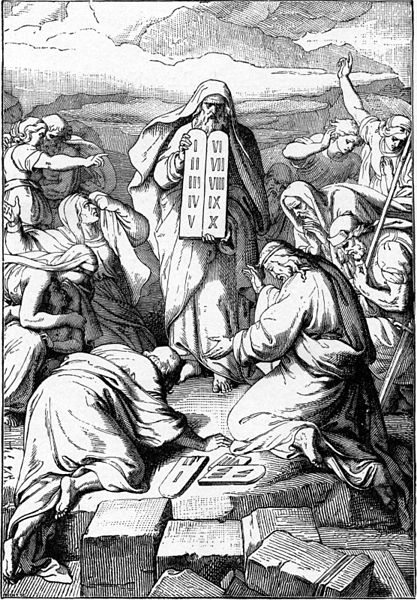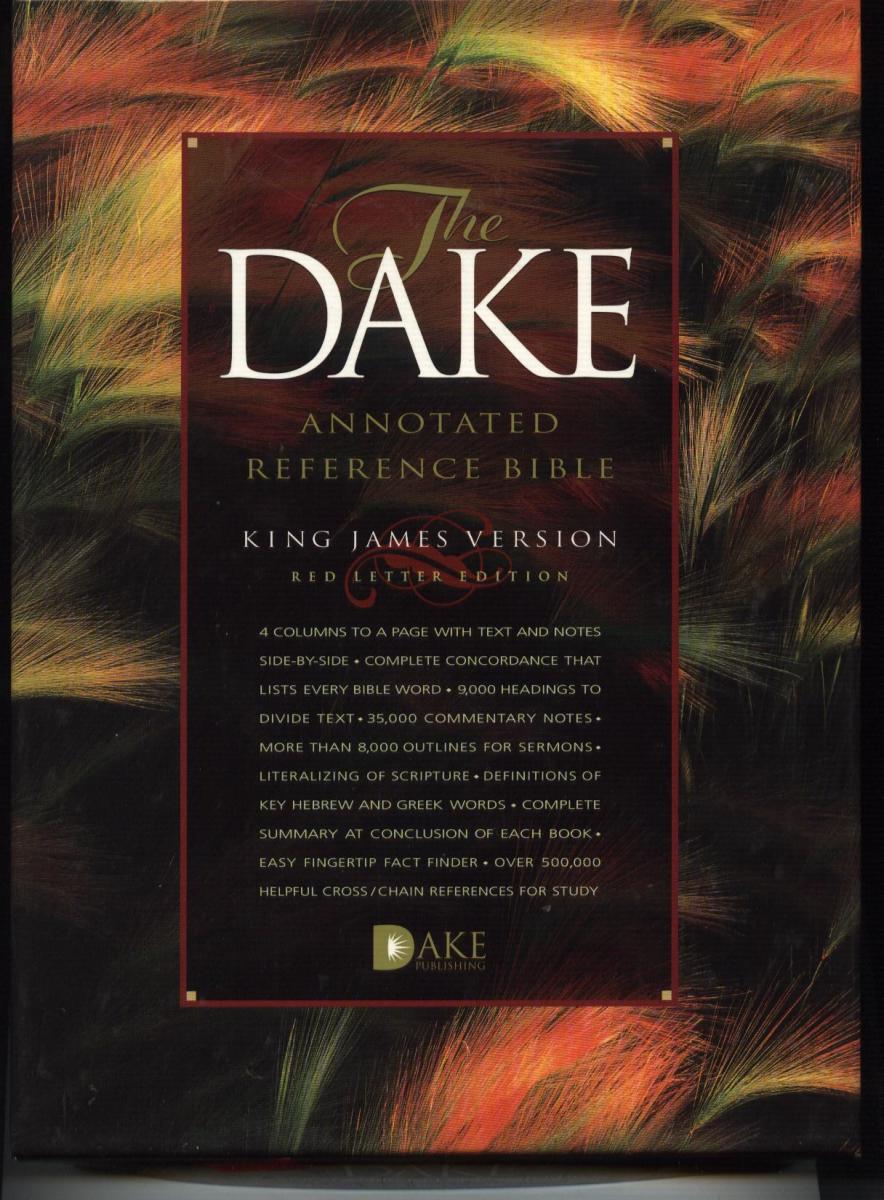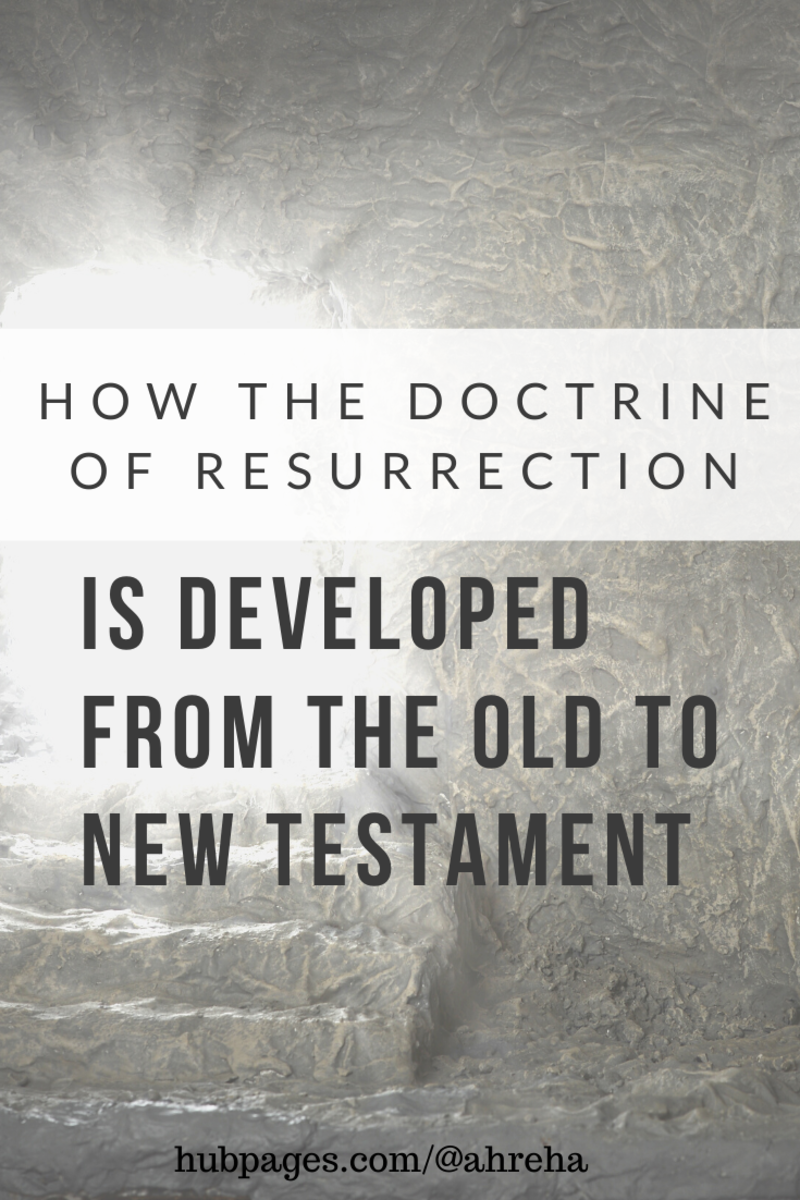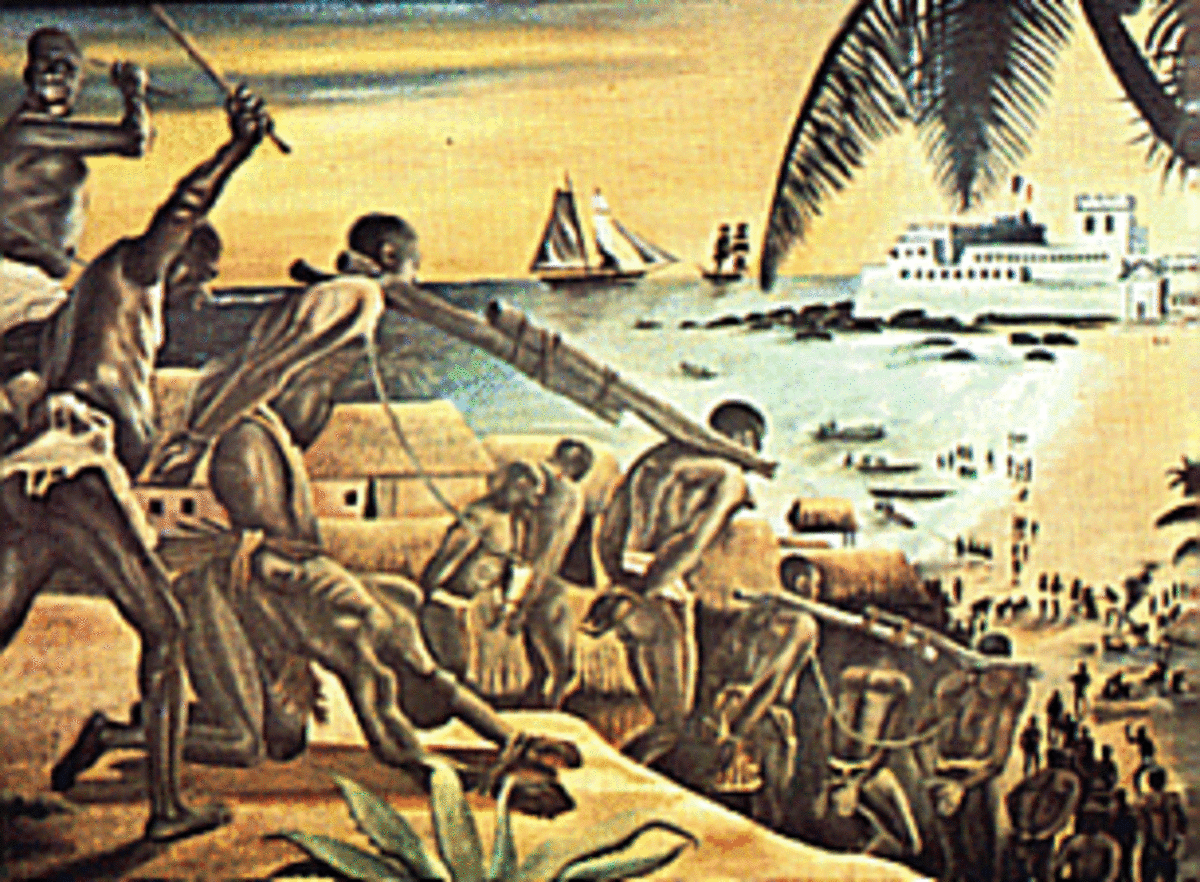Does the Old Testament Really Support Slavery?







Slavery and Murder in the Bible Pt. 2
"Slavery, the practice or system of owning slaves brings tears, anger and embarrassment to most people of our time, but does the Bible agree that slavery is a crime and did Jesus (according to the bible) make any attempt to end slavery?"
So goes one paragraph in the Hub "Do we get our moral code from the Bible?" and it echoes the sentiments of many people both within and without Hubpages. The first thought that occurs to me is to ask if the real test of authenticity for all ancient documents is the extent to which they agree with and validate concepts and knowledge that would be unknown to people for hundreds or even thousands of years? Many people would say "yes," and the author of the referenced Hub would certainly be among the first to claim that the Bible's moral and scientific "knowledge" is so backward that it couldn't possibly be an authentic document.
My purpose here is certainly not to debate the science of the Bible. However, the author and others have made it clear that the presence or absence of 21st Century morality, (or at least sentiments) in the Bible is the make-or-break sign of authenticity.
Let's look at the evidence.
There are many verses in the Bible that (in English translations at least) have the word "slave" or "slavery" in them. The ones specifically referenced by the author of the other Hub, and by many others are:
In the Old Testament:
- Exodus 21:7-11
- Exodus 21:20-21
- Leviticus 25:44-46
In the New Testament:
- Matthew 18:25
- Colossians 3:22
- 1 Timothy 6:1
- Titus 2:9
You may have noticed that, unlike many of the skeptics, I have divided the verses between the Old Testament and New Testament. This is not an artificial division. Although the Old Testament presents us with the Mosaic Law, it also presents us with a great many rules that were understood to apply to ancient Israelites specifically. The ancient Babylonians, Egyptians, Philistines, what have you were not given these rules, and many of them were not applied to other modern or Gentile peoples. Although most people seem to intuitively understand this about the dietary laws (despite the occasional waves of nonbelievers who think that seafood is some kind of "gotcha moment" for Christians,) it seems to get lost with other rules. And the rules of "slavery" are no different.
This Hub will deal with the Old Testament verses exclusively. The Old Testament verses deal exclusively with Israelite relations to other Israelites and other peoples. Rules about slavery were given to the Israelites. The New Testament, in stark contrast, deals with a situation where the Roman Empire had conquered and, at least according to Jewish thought, enslaved Israel. And chattel slavery (chattel meaning that the slaves were property, stripped of all legal rights) was institutionalized in Roman law. Was it in Israelite law as well?
The terms "master" and "servant" can be a bit misleading. John Goldingray, in his book Old Testament Theology: Israel's LIfe vol. 3, points out that what we think of as "master" is often more akin to "employer," and what we think of as "slave" can just as often be more of a "servant" or "man-servant." What is being discussed here is not chattel slavery but debt slavery. Sometimes, when debt became more than a family member could bear, one or more members of the family would "sell" themselves in order to satisfy that debt. This is very similar to indentured servitude, whereby people would "sell" themselves to somebody for a set amount of time until a bill was settled or a debt paid for. Anyone familiar with American history knows that many of the early European settlers were indentured servants. In The Oxford Companion to American History, David W. Galesson says that one-half to two-thirds of white immigrants to Britain's colonies were indentured servants.
A good example of this form of arrangement would be when Jacob worked for Laban for seven years in order to marry Rachel.
And unlike chattel slavery, the family of a debt-servant could redeem that servant, or cover that debt (the phrase "kinsman redeemer" appears several times in the Old Testament, most famously in the Book of Ruth.) That was the theory, although in practice this was not always possible because other family members simply may not have the means to cover the debt. Still, it was possible for family to cover the debt and then the "slave" would be free to live their own life.
There were also strict rules about servant-hood in ancient Israel. Deuteronomy 15:1-18 outlines a long list of regulations concerning how masters and debt-holders were to treat their servants, including that servants are to work no longer than six years and be released on the seventh with all debts forgiven. This is not the same as chattel slavery as practiced either in ancient Rome or in the antebellum American South.
Did the Israelites ever violate these rules? Yes. And when it became a regular practice it was singled out by God as a reason why the northern kingdom of Judah went into the Babylonian Exile (Jeremiah 34:12-22.)
Leviticus 25:39-40 is pretty explicit: "39 ‘If a countryman (footnote: literally brother) of yours becomes so poor with regard to you that he sells himself to you, you shall not subject him to a slave’s service. 40 He shall be with you as a hired man, as if he were a sojourner; he shall serve with you until the year of jubilee." (NASB)
Exodus 21:16 also prevents the act of kidnapping someone to sell as a slave: "16 “He who kidnaps (literally steals) a man, whether he sells him or he is found in his possession (literally hand), shall surely be put to death." (NASB) This was not a small thing either, as everyone would remember the story of Joseph being sold into slavery by his brothers. In fact, it is often cited in the Old Testament for the Israelites to remember that they were slaves.
"Ooookaaayyy," someone is saying, "we've covered the Hebrews. But didn't the Israelites have, you know, foreign slaves the way other cultures around them did?"
Deuteronomy 23:15-16 has this to say: "15 “You shall not hand over to his master a slave who has escaped (lit. delivered himself) from his master to you. 16 He shall live with you in your midst, in the place which he shall choose in one of your towns (lit. gates) where it pleases him; you shall not mistreat him." (NASB) Certainly this covers any runaway Israelite slaves, but both John MacArthur and Paul Copan state that this seems to have in mind slaves who escaped from Israel's neighboring countries. Copan especially, in Is God a Moral Monster?, notes the lack of words like "brother" or "neighbor" when arguing that these verses pertain to foreign, or non-Israelite, slaves. This is also in direct contrast to the chattel slavery laws of antebellum America, ancient Rome and even other ancient Near Eastern civilizations, where not only were the slaves treated as lost property but anyone found to be harboring them was subject to extreme punitive measures.
Now, it can be argued that the fact that slavery existed at all is a serious cultural deficiency. I don't disagree. Slavery is a horrible thing and the abolition of institutionalized slavery is a true, Christian advance in society. But the laws of ancient Israel were a great improvement over the laws and rules of surrounding cultures, where the king was often considered the embodiment of and/or the representative of the dominant god, and everything belonged to him. By contrast, in Israel everyone was considered to be made in the image of God, and the literature is peppered with reminders that the Israelites had once been slaves and for that reason, among others, they must have compassion for their fellow humans.
"Whatever," some people will say, "what about those verses? You didn't deal with those? Huh? Huh?"
All right...
(1) "7 If a man sells his daughter as a female slave, she is not to go free (lit. go out) as the male slaves do (lit. go out). 8 If she is displeasing (lit. bad) in the eyes of her master who designated her for himself (pos. so that he did not designate her), then he shall let her be redeemed. He does not have authority to sell her to a foreign people because of his unfairness (lit. dealing treacherously) to her. 9 If he designates her for his son, he shall deal with her according to the custom of daughters. 10 If he takes to himself another woman, he may not reduce her food, her clothing, or her conjugal rights (lit. flesh). 11 If he will not do these three things for her, then she shall go out for nothing, without payment of money." (Exodus 21:7-11 NASB)
As I've already said, knowledge of history and culture is helpful. Without debating the relative merits of the situation, the fact is that women were treated differently than men. We've already established that the daughter was not sold into chattel slavery, never to be seen by her family again if the master so fancied. She worked until the debt was paid off. In the ancient world, women didn't run out and start their own businesses. Of course there were women who owned property, but this was usually because their husbands had died or their fathers had died and left no male heirs. In other words, these were the exception, not the rule. Most women staid with their mother and father until they got married, and most women married young by modern standards. It's well known that a woman in her mid-twenties who wasn't married was considered to have something wrong her in that culture. So these verses actually go to establish the humanity of the girl, not deny it! It wouldn't have been so unusual for a girl to come into the house and the "master" to fancy her for his son or (possibly) himself. Again, I'm stating the facts, not debating the merits. The key phrase is in verse 11, "according to the custom of daughters." He should treat her as he would his own daughter, not as property to be dispensed with however he might see fit. And if he doesn't arrange for her to marry into his household, when the debt is paid she goes back to her parents house.
(2) "20 If a man strikes his male or female slave with a rod and he dies at (lit. under) his hand, he shall be punished (lit. suffer vengeance.) 21 If, however, he survives (lit. stands) a day or two, no vengeance shall be taken; for he is his property (lit. money.)" (Exodus 211:20-21 NASB)
I'm going to get a little technical here. The Hebrew word translated here as "punished" is naqam. which according to Concordances.org (http://concordances.org/hebrew/5358.htm) among other sources means, "to avenge, to take vengeance." The connotation is that the "master" will be sentenced to capital punishment, that the vengeance is judicial, according to Gregory C. Chirichigno in Debt-Slavery in Israel and the Ancient Near East. Now, if these slaves were only property the same way slaves were in the antebellum South, why would the master face any consequences for killing the slave?
Also, the word translated as "property" at the end of the verse would be better translated as "money." The servant is the master's money. The servant, remember, was paying off a debt, after which he/she was to go free. And if the master faced punitive measures for killing the servant, no prudent master is going to risk killing the servant for pleasure or rage. In fact, if the servant was hurt too badly, the master stood to lose money, because the debt was not being repaid while the slave recuperated.
Again, I'm not arguing that ancient Israeli customs were superior to 21st Century American customs. However, they were superior to customs of other ancient Near Eastern cultures, where slaves were treated more the way we think of when we hear the word "slaves."
(3) "44 As for your male and female slaves whom you may have—you may acquire male and female slaves from the pagan nations that are around you. 45 Then, too, it is out of the sons of the sojourners who live as aliens among you that you may gain acquisition, and out of their families who are with you, whom they will have produced (lit. begotten) in your land; they also may become your possession. 46 You may even bequeath them to your sons after you, to receive as a possession; you can use them as permanent slaves. But in respect to your countrymen (lit. brothers,) the sons of Israel, you shall not rule with severity over one another." (Leviticus 25:44-46 NASB)
The first and most obvious point is that this verse distinguishes between native Israelites and aliens or foreigners, those who came from outside of Israel and are not Hebrews. It is worth remembering here that Exodus 22:21 states, "21 You shall not wrong a stranger or oppress him, for you were strangers in the land of Egypt." The reminder that the Israelites were "strangers" means that the "strangers" they were not to oppress would be aliens, non-Israelites. The Jews were reminded here (as they were elsewhere in the OT) of their time as slaves in Egypt and that this should cause them to exercise greater compassion to other peoples, not less.
It is also worth remembering that there is a real distinction between foreigners (people who came from a foreign country, either to trade with Israel then go back home or because of wars and arrived as prisoners,) and aliens (sojourners) (people who came to Israel to live, and often they embraced many Israelite customs and partook in the religious life of Israel.) The foreigners (nokrim, or sometimes bene-nekar, or "sons of a foreign land,") often were hostile to Israeli customs and religion, and were often associated with idolatry, which the Old Testament is shot through with warnings against. Does this mean that all foreigners became slaves in Israel? No, as we have already seen there were protections for foreigners and admonishments to the Jews about how to treat foreigners. But there were distinctions between Israelite debt-slaves and foreign slaves, who were still not treated as chattel the way slaves were treated in surrounding cultures at the time.
All this is not to say that conditions were what we in the 21st Century would have preferred. It's easy for us in the present to look at the past and pass judgement. But we didn't live back then, and the people who did looked at things differently than we do.
There is also the argument that God should have simply "laid down the law" and abolished slavery altogether. Well, I have often thought the same thing, but it must be remembered that at that time, this was what kingdoms did. God did "lay down the law," quite literally, and it was a huge improvement over other cultures at the time. Change happens incrementally, and people are resistant to things happening too quickly.
The author of several postings who I am also answering closes one of his posts by writing, "Not only does it (the Bible) support slavery (permanent ownership of a person) but it gives them basically no human rights, you can even murder your slaves without repercussions as long as they don't die immediately, which means you can absolutely beat and abuse you slaves without repercussion because they are your property." But that is not true. All it takes is a little knowledge of Scripture, history and culture to see what the Bible really supports.
Well, that takes care of the Old Testament. But what about the New Testament?
copyright (C) 2012 christopher w neal all rights reserved
Suggested reading list: Is God a Moral Monster? by Paul Copan









